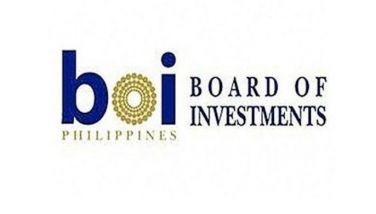Businessmen cautiously optimistic over economy

September 27, 2005 | 12:00am
A majority of businessmen are cautious in conducting their activities in the country today but still remain optimistic in their overall outlook on doing business amidst the current political turmoil surrounding President Arroyo, according to a business confidence survey conducted by the Philippine Chamber of Commerce and Industry (PCCI).
According to the survey, 74 percent of the respondents said they will continue doing business in the country, while two percent said they have plans of moving to a different location.
Meanwhile, majority of the respondents or 40 percent said that their businesses will grow in the next 12 months, while 30 percent believe that their businesses will not show any sign of improvement.
Asked whether they think the economy will improve in the next six months, 54 percent said they are not expecting an economic upturn. On the other hand, 16 percent of the respondents believe that the economy will improve in the next six months, while 28 percent said that the economy will improve in the next 12 months.
Majority of businessmen are wary on the positive implications of the Expanded Value Added Tax Law (EVAT) to their businesses. Sixty percent of respondents said the EVAT will not be beneficial to business; only eight percent believe that the EVAT will improve business in the country.
PCCI is batting for key amendments to the EVAT law.
Businessmen have also expressed concern on the impact of the current political crisis to business.
Seventy percent of businessmen surveyed said that the political turmoil has one way or another affected their business plans and operations. On the other hand, 45 percent of the respondents believe that President Arroyo has to work harder if she were to realize her economic reform agenda before her term expires in 2010.
Businessmen also raised the need for government to strictly enforce rules and regulations to improve business and investor confidence in the country. Fifty five percent had admitted their experience of exerting "extra effort" just to avail of a particular government service, while 62 percent expressed dissatisfaction over government’s ability to provide adequate protection and safeguards for businesses.
Most of the respondents have also expressed reservations over the benefits of full trade liberalization on the economy. However, majority of the respondents believe that globalization has a positive impact on business.
Businessmen ranked cost of power and energy, political instability, peace and order, graft and corruption, and fiscal policy as the five most outstanding issues affecting the business community in the country. Among these, cost of power and energy and political instability are the most prominent issues.
Sixty-five percent of respondents listed the cost of electricity and political instability as key issues affecting business confidence in the country, just a shade above concerns over law and order and corruption.
Donald Dee, PCCI president said the survey is a testament on the need for government to continue exerting its effort in ensuring the implementation of the various reform measures aimed at improving the country’s economic performance and investor confidence.
"The challenge for government now is to see to it that it is on track with respect to implementing its commitments in instituting various reforms that will substantially improve the country’s socio-economic sectors and attract local and foreign investors," Dee said.
The survey aims to gather general information from PCCI members about their concerns and perceptions regarding the current state of the country’s over-all business environment. Two hundred fifty respondents composed of small, medium and large companies from PCCI’s membership participated in the survey.
Meanwhile, Dee is amenable to giving the President and Congress some flexibility in rewriting government policies with regards to business to be able to respond more quickly to a changing global business environment.
In a press conference, Dee likewise, agreed on the need for the government to exercise temporary powers to regulate or supervise certain industries or business.
However, Dee stressed that business would still be opposed to a government takeover of any business or industry.
As part of moves to overhaul the Constitution, Dee was agreeable to inserting a provision in the Constitution that would allow Congress or the President to rewrite certain policies that would allow the government to more quickly respond to a changing global business environment.
Dee argued that there is a need to trust Congress and the President to make such changes, otherwise, the government would always be constrained by the limitations set by the Constitution.
Dee’s position was supported by PCCI chairman emeritus Miguel Varela who sees the need to make some future adjustments even in the sensitive issue of land ownership by foreign investors if the Philippines wants to be able to attract foreign investments.
However, on the issue of a government takeover of vital energy firms. Dee pointed out that the law allows only a temporary control, supervision or regulation in times of crisis.
According to the survey, 74 percent of the respondents said they will continue doing business in the country, while two percent said they have plans of moving to a different location.
Meanwhile, majority of the respondents or 40 percent said that their businesses will grow in the next 12 months, while 30 percent believe that their businesses will not show any sign of improvement.
Asked whether they think the economy will improve in the next six months, 54 percent said they are not expecting an economic upturn. On the other hand, 16 percent of the respondents believe that the economy will improve in the next six months, while 28 percent said that the economy will improve in the next 12 months.
Majority of businessmen are wary on the positive implications of the Expanded Value Added Tax Law (EVAT) to their businesses. Sixty percent of respondents said the EVAT will not be beneficial to business; only eight percent believe that the EVAT will improve business in the country.
PCCI is batting for key amendments to the EVAT law.
Businessmen have also expressed concern on the impact of the current political crisis to business.
Seventy percent of businessmen surveyed said that the political turmoil has one way or another affected their business plans and operations. On the other hand, 45 percent of the respondents believe that President Arroyo has to work harder if she were to realize her economic reform agenda before her term expires in 2010.
Businessmen also raised the need for government to strictly enforce rules and regulations to improve business and investor confidence in the country. Fifty five percent had admitted their experience of exerting "extra effort" just to avail of a particular government service, while 62 percent expressed dissatisfaction over government’s ability to provide adequate protection and safeguards for businesses.
Most of the respondents have also expressed reservations over the benefits of full trade liberalization on the economy. However, majority of the respondents believe that globalization has a positive impact on business.
Businessmen ranked cost of power and energy, political instability, peace and order, graft and corruption, and fiscal policy as the five most outstanding issues affecting the business community in the country. Among these, cost of power and energy and political instability are the most prominent issues.
Sixty-five percent of respondents listed the cost of electricity and political instability as key issues affecting business confidence in the country, just a shade above concerns over law and order and corruption.
Donald Dee, PCCI president said the survey is a testament on the need for government to continue exerting its effort in ensuring the implementation of the various reform measures aimed at improving the country’s economic performance and investor confidence.
"The challenge for government now is to see to it that it is on track with respect to implementing its commitments in instituting various reforms that will substantially improve the country’s socio-economic sectors and attract local and foreign investors," Dee said.
The survey aims to gather general information from PCCI members about their concerns and perceptions regarding the current state of the country’s over-all business environment. Two hundred fifty respondents composed of small, medium and large companies from PCCI’s membership participated in the survey.
Meanwhile, Dee is amenable to giving the President and Congress some flexibility in rewriting government policies with regards to business to be able to respond more quickly to a changing global business environment.
In a press conference, Dee likewise, agreed on the need for the government to exercise temporary powers to regulate or supervise certain industries or business.
However, Dee stressed that business would still be opposed to a government takeover of any business or industry.
As part of moves to overhaul the Constitution, Dee was agreeable to inserting a provision in the Constitution that would allow Congress or the President to rewrite certain policies that would allow the government to more quickly respond to a changing global business environment.
Dee argued that there is a need to trust Congress and the President to make such changes, otherwise, the government would always be constrained by the limitations set by the Constitution.
Dee’s position was supported by PCCI chairman emeritus Miguel Varela who sees the need to make some future adjustments even in the sensitive issue of land ownership by foreign investors if the Philippines wants to be able to attract foreign investments.
However, on the issue of a government takeover of vital energy firms. Dee pointed out that the law allows only a temporary control, supervision or regulation in times of crisis.
BrandSpace Articles
<
>
- Latest
- Trending
Trending
Latest
Trending
Latest
Recommended





























